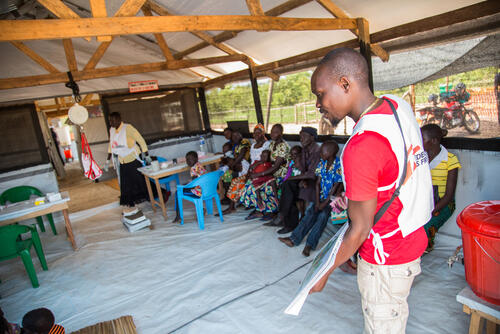Four years of civil conflict have taken a brutal toll on South Sudan and created one of the world’s worst displacement crises. Civilians have experienced extreme levels of violence and been forced from their homes. Two million people are currently displaced within the country, while another two million have sought refuge in the Democratic Republic of Congo, Ethiopia, Sudan and Uganda, and are scattered in camps along the borders.
After two brutal wars lasting decades, South Sudan achieved independence in 2011, but is still struggling today to provide sufficient essential infrastructure and services such as healthcare. In December 2013, two years after independence, an internal split within the governing party, the Sudan People’s Liberation Movement, triggered a violent conflict that has displaced nearly four million civilians – a third of the population of Africa’s newest country. Half of these war-affected civilians are displaced internally while the rest have fled the country.
According to the UN, the collapse of the July 2016 peace talks contributed to a further surge in displacement: 737,400 people had left their homes by the end of that year. The numbers continued to increase in early 2017, particularly in Greater Equatoria region, which saw an unprecedented exodus of one million people. The outflow has been so dramatic that Uganda and Ethiopia now host the highest number of refugees in sub-Saharan Africa.
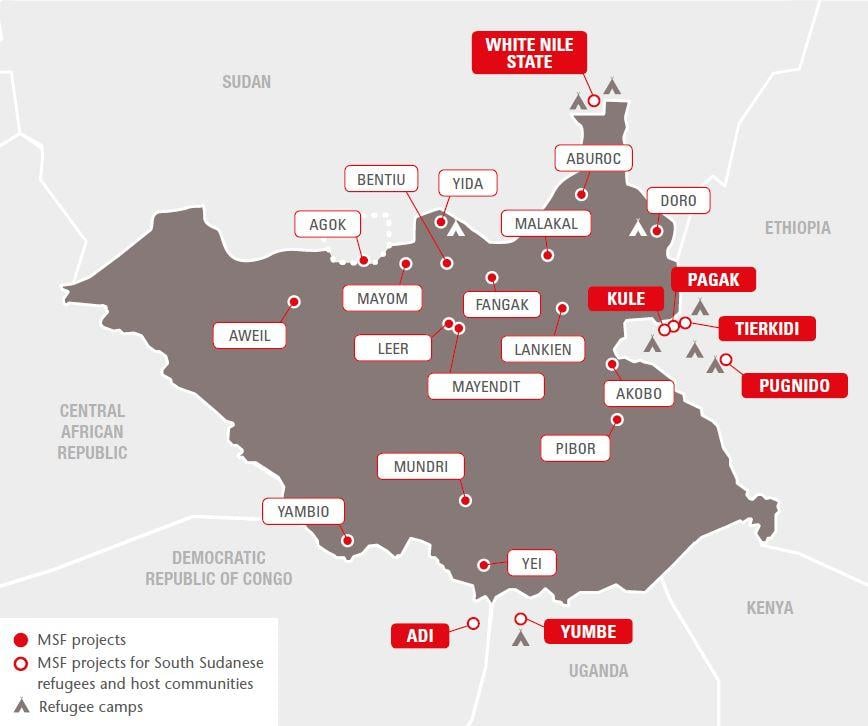
The displaced have severely limited access to clean drinking water, sanitation and health facilities. Consequently they are prone to diseases such as malaria, respiratory and skin infections and, in some areas, cholera. The majority of the displaced are the most vulnerable: 85 per cent of refugees are women and children. MSF has set up one of its most ambitious medical assistance programmes, with 17 bases inside South Sudan and seven on the border. MSF is continually developing and adapting operations to assist the displaced – from setting up hospitals in camps to delivering medical supplies on foot – all in a bid to reach and treat patients, regardless of how remote their locations may be.
Sudan
At the end of 2017, the UN registered 772,000 South Sudanese refugees in Sudan and expects 200,000 more to arrive in 2018. MSF has set up an emergency field hospital providing secondary healthcare and runs a hospital in Kashafa refugee camp that also acts as a referral point.
Many of the South Sudanese now living in White Nile state's refugee camps fled sexual violence, torture, murder, and the destruction of their homes and villages.Lulwa Al Kilansi, project manager
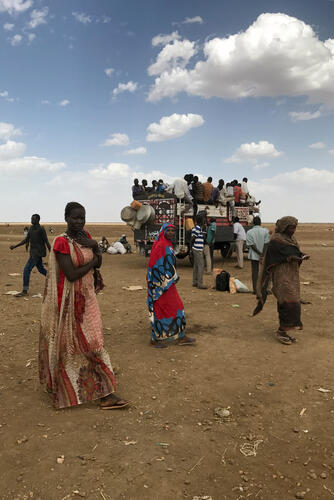
From one refugee to another, I hope that they can go home soon. While Sudan has offered them protection… this is not where they want to be.Lulwa Al Kilansi, project manager

Uganda
Vast numbers of refugees, primarily from Greater Equatoria region in South Sudan, arrived in northern Uganda in 2017. MSF provides primary and maternal healthcare, as well as mental health support and treatment for victims of sexual violence. But aid for the growing camp is still insufficient. Bidi Bidi alone hosted 270,000 refugees in April 2017 – more than any other place in the world. The UN had expected roughly 300,000 South Sudanese refugees to come to Uganda in 2017 – by March, the estimate had risen to 400,000.
In June, Jocomina Apelino came to Uganda with her three children, looking for food. But funding gaps have forced the World Food Programme to severely reduce food rations within the camps. Jocomina is now facing the same food shortages as she did at home while caring for her sick mother-in-law and nephew. By August, one million people had arrived at the four refugee camps (Bidi Bidi, Imvepi Palorinya and Rhino) in Yumbe district – 85 per cent of them women and children. The UN estimated that 1.3 million South Sudanese children under the age of five were at risk of acute malnutrition at the end of 2017.
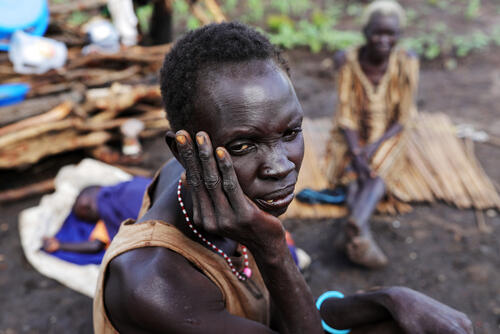
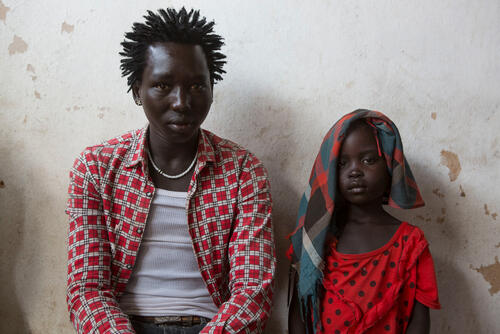
Ethiopia
Around Pugnido, MSF provides care to South Sudanese refugees and the local communities. In 2017, we increased our support to Gambella hospital, the only facility in the region offering specialised medical care for 800,000 people – half of them from South Sudan.
The lack of clean drinking water is a serious issue for all of the refugee camps neighbouring South Sudan, contributing to diseases such as acute watery diarrhoea. Overcrowding also facilitates the spread of tuberculosis and respiratory tract infections.
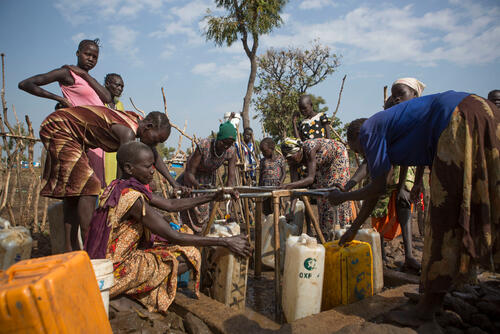
During the second half of 2017, we have seen a big influx – approaching 30,000 refugees – into Gambella’s Nguneyyiel camp after another camp was invaded by armed forces.Anton Breve, deputy head of mission
Democratic Republic of Congo
South Sudanese refugees and Congolese returnees have arrived in two sites close to the South Sudanese border – Karagba and Olendere, Ituri province, Democratic Republic of Congo – where MSF has set up mobile clinics. The clinics provide basic healthcare, mental health support, and sexual and reproductive health consultations. We also support the regional hospital.
